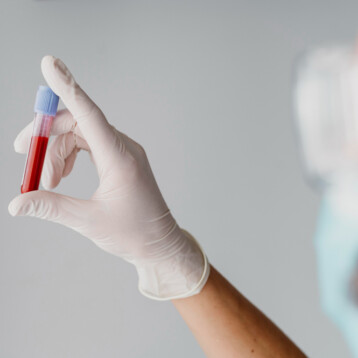Additional evidence of the link between cancer and inflammation: Scientists from MIT have uncovered one of the causes for colon cancer. Apparently, a compound released during an inflammatory process causes cells to become cancerous. This discovery may help both in prevention and treatment of inflammation-related cancers.
 |
| James Fox (Credit: MIT) |
|
Nitric oxide (NO) is an important signaling molecule in mammals. The compound has both beneficial and harmful influences on these organisms. Nitric oxide is suspected to be produced by the immune system in response to bacterial infections. Scientists from MIT’s Division of Comparative Medicine and Department of Biological Engineering, led by James Fox, director of the Division of Comparative Medicine (DCM), have recently discovered that nitric oxide, produced by inflammatory cells in the course of a bacterial infection, can cause colon cells to become cancerous. These findings suggest that chemically blocking the chemical may help treat or prevent colon cancer.
It has been known for a long time that there is a link between the gastrointestinal infections caused by H. pylori is linked to colon cancer in humans. H. hepaticus, a similar bacterium has a similar effect in mice. The inflammatory response to such an infection results, among other things, in the production of nitric oxide. In a study using the mice model for the bacterial infection, the scientists have found that NO produced by different cells had different kinds of influences on its surroundings.
“Nitric oxide delivered by inflammatory cells, in particular, is important in causing changes in intestinal epithelial cells, setting the stage for cancer development,” said Susan Erdman, principal research scientist in the Division of Comparative Medicine.
The researchers infected mice with H. hepaticus and discovered that blocking an enzyme necessary for the production of NO reduced the percentage of mice that developed colon cancer. Further work must be done to fully understand the effects of nitric oxide on colon cells and develop potential clinical therapies. Researchers will focus on the treatment of ongoing colon cancer as well as the prevention of its initial development, perhaps by treatment of the initial inflammation process. Stopping nitric oxide production all over the body may be a dangerous as NO takes part in other bodily functions, so the treatment will have to be localized.
“Therapies will need to be targeted to inhibit the damaging effects of nitric oxide while preserving as many of the protective elements of Nitric Oxide as possible,” said Erdman.
For more information on the recent nitric oxide research, please visit the MIT press release
site.











